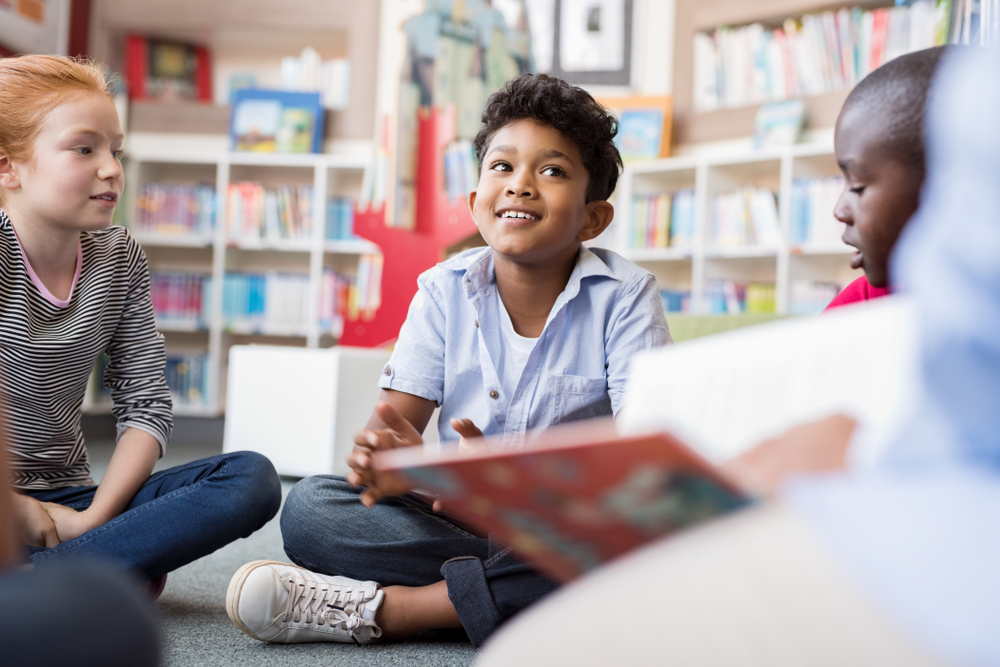
One of the first things to do when you’re applying to L.A. private schools is to determine what type of school will be best for your child. But, when you tour so many schools it may be hard to tell from just a tour and an open house. Many schools in L.A. are a hybrid or mix of philosophies. But, there are certain characteristics that stand out and will help you recognize the type of school you’re considering. Generally, L.A. private schools fall into three categories: Traditional, Progressive and Developmental. Religious schools can be any of those school types, although most are traditional.
If you’ve been reading this blog for awhile, you know we’ve written about this issue previously because it’s so important to find the right kind of school for your kid. If you ask a school about their educational philosophy, they should be able to explain it clearly! The other day, I had lunch with a mom of four kids who told me she’d toured almost every private school in the city because her kids are very different from each other. My kids attended Willows, a progressive school, but moved to Viewpoint, a traditional school for 7-12th grades. One philosophy isn’t better than the other–just different. Kids from all types of school go on to great colleges. You’ll note that a few schools I listed are in overlapping categories because I consider them to be a mix of educational philosophies. And, my list is merely my own observation of various schools–discussions about this topic can be subjective. For example, some people might consider Brentwood Lower School to be purely traditional. But, when I went on the tour, they described the school curriculum as developmental. In my opinion, Brentwood has both traditional and developmental qualities. Also, traditional schools aren’t all “stale” or “dull” and progressive schools aren’t “cutting edge” or “hip”…you get the point! Maybe a school wants to emphasize its progressive qualities, but really it has a lot of traditional elements. Sometimes, when a school hires a new head of school, it can be a bring a change in educational philosophy. In the end, its about finding a school where your kid will thrive and where you, as a parent, will understand and embrace the way the school teaches, assigns homework, creates community among parents, disciplines, coaches and more. –Christina
Examples of Traditional Schools: Viewpoint, Harvard-Westlake, Polytechnic, Brentwood Upper School, Laurel Hall, Campbell Hall, St. Matthew’s, Wesley, Curtis, Carlthorp, John Thomas Dye.
Hallmarks of traditional schools:
- Much like public schools many of us attended when we were kids
- Teacher centered-not kid centered
- Kids expected to meet academic milestones by certain time (reading by mid-year kindergarten, etc. )
- Homework in elementary schools, multiple choice tests, quizzes, pop quizzes
- Very few group projects
- Teacher directed work, not kid directed
- Classroom setup has teacher at front, desks facing front of room
- Grades start in early elementary schools
- Lots of memorization
- Competitive sports teams, tryouts, not everyone places, A, B, C teams
- AP and honors classes offered in high school
Developmental: Brentwood Lower School, Campbell Hall Lower School, Laurence School, Echo Horizon, Temple Israel of Hollywood and Westridge.
- Kids learn at their own pace, eventually all arriving at the same place (reading). That is celebrated, not penalized
- Kids can help each other learn, not just teacher directed learning
- Teaching big concepts, not a ton of detail/memorization
- Integrated curriculum…where what’s happening in science relates to language arts, which also relates to art class
Progressive: Oakwood, Children’s Community School, Westland, PS#1, Crossroads and Sequoyah.
- Child-centered learning, kid-initiated projects, learn through playing
- Concepts like sharing, creating, caring are emphasized in the curriculum
- Engaging kids in learning about world around them…kids are part of a global community
- Rejection of memorizing big amounts of information
- A whole child approach-social, emotional and academic
- Lots of group projects, discussion and debate among kids
- Classroom may be set up with kids at big tables facing each and the teacher may not be in front of the class
- Very little homework in elementary school
- No grades until late elementary or even middle school
- Lots of expository writing
- High school may not offer AP Classes (AP equivalent offered at Crossroads)
- Integrated curriculum where what’s happening in science relates to language arts which also relates to art class
Stay up to date on the latest L.A. private schools news and events! Follow Beyond The Brochure on Facebook. Buy the book on Amazon.